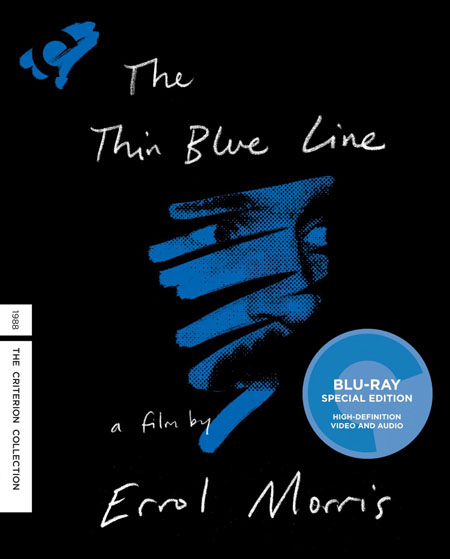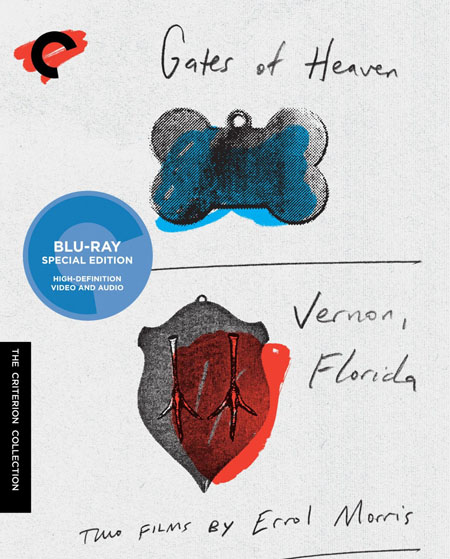
THE EYE OF ERROL
MORRIS
By Raymond Benson
Very
few documentary filmmakers are able to break into the American mainstream (and
abroad) and become both a critical and commercial success. The majority of
documentaries made do not get seen in your average metroplex, but a lucky
bucketful—Michael Moore’s films, for example—get wide releases.
This
happened to Errol Morris in 1988 with the release of his excellent docu-drama, The Thin Blue Line. Critically acclaimed
(but excluded from Oscar consideration because it contains recreated sequences),
Morris’ tale of Randall Dale Adams, a convict sitting in a Texas penitentiary who
may have been convicted, imprisoned, and sentenced to death for a crime he
didn’t commit, struck a chord with the audience. It also became a cult hit and
served as Morris’ gateway to becoming one of the best-known and respected documentarians
of our day. After all, the film indirectly resulted in Adams’ exoneration and
release. (Morris eventually did win the Oscar for Best Documentary in 2003 with
The Fog of War: Eleven Lessons from the
Life of Robert S. McNamara.)
This
month The Criterion Collection delivers a one-two punch from Errol Morris—The Thin Blue Line on one disc, and,
packaged separately, a double-feature of Morris’ first two acclaimed
documentaries—Gates of Heaven and Vernon, Florida. The two releases
provide the viewer with a look at the evolution of a filmmaker over a ten-year,
three-film period.
At
the time, The Thin Blue Line explored
new ground in documentary approach, presenting a crime story in a style akin to
television’s America’s Most Wanted,
which, coincidentally, debuted the same year. It was “reality cinema,â€
containing POV interviews with suspects, lawmen, attorneys, and witnesses, and
footage of the “crime†staged and recreated by actors—all standard stuff of
reality crime shows on TV today. It was new then.
It’s
interesting to note that Morris didn’t set out to make a documentary about
Randall Dale Adams. His original intent was to cover the psychiatrist known as
“Dr. Death,†a man in Texas who testified at every capital sentencing as to the
defendant’s likelihood of committing more crimes if he was not put to death.
But in the course of researching his subject in Dallas, Morris came across
Adams’ case and turned his attention to that.
The
picture is as riveting and suspenseful as any fiction crime drama. The spoken evidence
Morris presents is compelling, but it’s the visual testimony—the Rashomon-style different points of view
of the crime reenactments—that supplies the picture with its engrossing neo-noir sensibility. Of particular note
is Philip Glass’ haunting score, which perfectly captures the melancholy and
paranoia of the world of crime and punishment.
Criterion’s
new high-definition digital restoration, supervised by Morris and producer Mark
Lipson, has a 2.0 surround DTS-HD Master Audio soundtrack, and both are
fabulous. Extras include a new interview with Morris, an interview with
filmmaker Joshua Oppenheimer on the picture, and a Today Show excerpt from 1989 covering Adams’ release from prison.
The booklet contains an essay by film scholar Charles Musser.
CLICK HERE TO ORDER FROM AMAZON

Gates of Heaven put Morris on the
map with this idiosyncratic look at the development of a pet cemetery in
California. Featuring interviews with the personages involved, as well as a
now-iconic clip of an old lady getting her dog to sing with her, Gates reveals the filmmaker’s quirkiness
and his ability to capture the truly weird on film. Vernon, Florida was actually Morris’ first endeavor, but he’d left it
unfinished. He went on to make Gates and
then returned to complete the short. It’s about some truly eccentric
individuals who live in a small whistle-stop town in the boondocks. Originally,
Morris had planned to cover an insurance scam that was prevalent in the
town—people were cutting off limbs and submitting accident claims, earning the community
the name “Nub City.†Morris gave up that idea when he was beat up by some of
the people he was interviewing!
Criterion’s disc features new 2K digital
restorations of both films, supervised by Morris. Extras include two new
interviews with the director about each picture, footage of director Werner
Herzog talking about Gates at the
1980 Telluride Film Festival, and the gem of the entire collection—the short
film Werner Herzog Eats His Shoe, a
1980 short, directed by Les Blank, that documents Herzog cooking and devouring
his shoe in public—he had bet Morris that if the young documentarian would
simply get out there and make his first feature (Gates), then Herzog would “eat his shoe.†While it’s great to have
the two documentaries on Blu-ray, I’m not so sure the two films deserved a
separate release of their own (they could have easily been extras on the Thin Blue Line disc).
But
talk about the eye of a filmmaker! Errol Morris works with one eye at full
strength and his other at a diminished capacity as a result of a childhood medical
condition, but that doesn’t keep the director from possessing a wonderful sense
of mise-en-scéne. He manages to depict the odd, the ironic, and the
profound all in one take. Check out both releases.
CLICK HERE TO ORDER FROM AMAZON